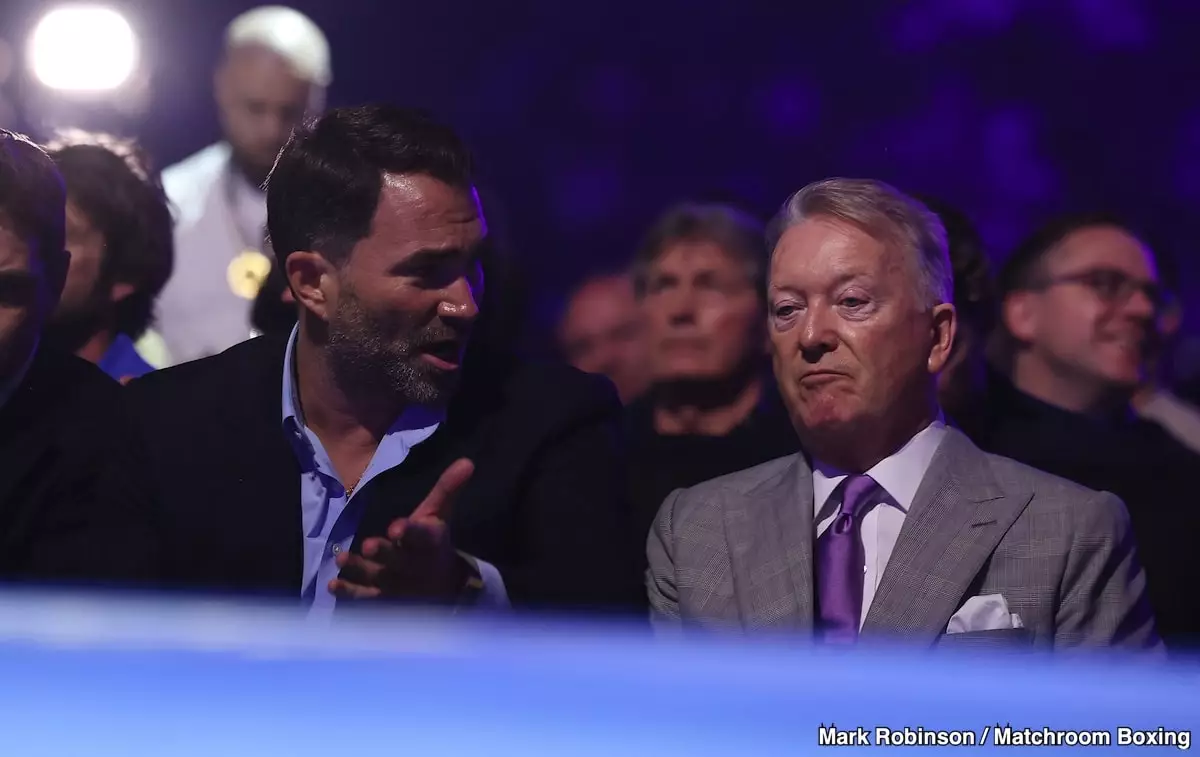In the world of boxing, discussions surrounding the greatest fighters of all time can ignite passionate debates among fans, analysts, and promoters alike. One prominent figure in the boxing community, Frank Warren, has shared his top five list, featuring legendary champions who have defined the sport over the decades. As the age-old adage goes, lists are often subjective, creating room for a plethora of opinions. Warren’s list, which includes Muhammad Ali and Sugar Ray Leonard, while significant, oversteps into contention when critically re-evaluated.
Warren’s rankings feature some universally acknowledged titans: Muhammad Ali, Sugar Ray Leonard, Sugar Ray Robinson, Larry Holmes, and Carlos Monzon. At 72 years old, Warren has a wealth of experience, having associated with numerous boxing legends, making his perspective potentially insightful. However, problems arise when one truly dissects the order and the selections themselves. How can Leonard be positioned above Robinson, who is often regarded as the archetype of boxing excellence? Leonard, while celebrated, may not hold a candle to Robinson’s unparalleled skill set and legacy in the ring.
Highlighting True Greatness
Robinson’s legacy is further complicated when contrasted against Ali’s contemporary standing. Ali’s charisma and impact on social issues make him a figure of monumental significance; however, within the realm of pure skill, many argue that Robinson deserves the top slot. Both were exceptional in their own rights, yet Robinson’s accomplishments—from his incredible winning streak to his versatility across multiple weight classes—highlight why he should arguably be acknowledged as the best boxer to ever lace up gloves.
Warren’s inclusion of Larry Holmes is a commendable nod to a fighter who often resides in the shadows of heavyweight giants. Holmes is a champion whose accolades deserve recognition, yet one must consider the Kelly Green of this argument: Is he truly championing the argument that other fighters deserve more exalted positions? Does Holmes deserve a spot over historic figures like Henry Armstrong or Harry Greb, whose aggressive styles and persistent victories carved out their own legacies?
If one were to shift the narrative, it could be insightful to propose a different list entirely. My personal perspective places Sugar Ray Robinson at the pinnacle, followed by the relentless Henry Armstrong, whose grit and hard-punching style carved his own narrative in boxing history. Following suit, one could argue for the inclusion of Ezzard Charles, Sam Langford, and Roberto Duran. Each of these fighters not only showcased skill and tenacity in the ring but also left an indelible mark on the sport’s fabric.
Ultimately, assessing the all-time greats in boxing hinges largely on personal perception, historical context, and the nuances of each fighter’s legacy. While Frank Warren’s contributions to this dialogue are noteworthy, they inevitably lead to further conversation regarding the landscape of boxing and what it means to be considered “great.” As fans and pundits continue to debate these rankings, the focus on historical impact, skill, and legacy remains central to understanding boxing’s rich tapestry. After all, the beautiful thing about boxing is that it prompts us to analyze, argue, and appreciate the sport from a multitude of angles. What’s your take?

